Lenovo Legion Go vs Asus ROG Ally X: which PC gaming handheld is best?
Which of the heavy hitters is superior?
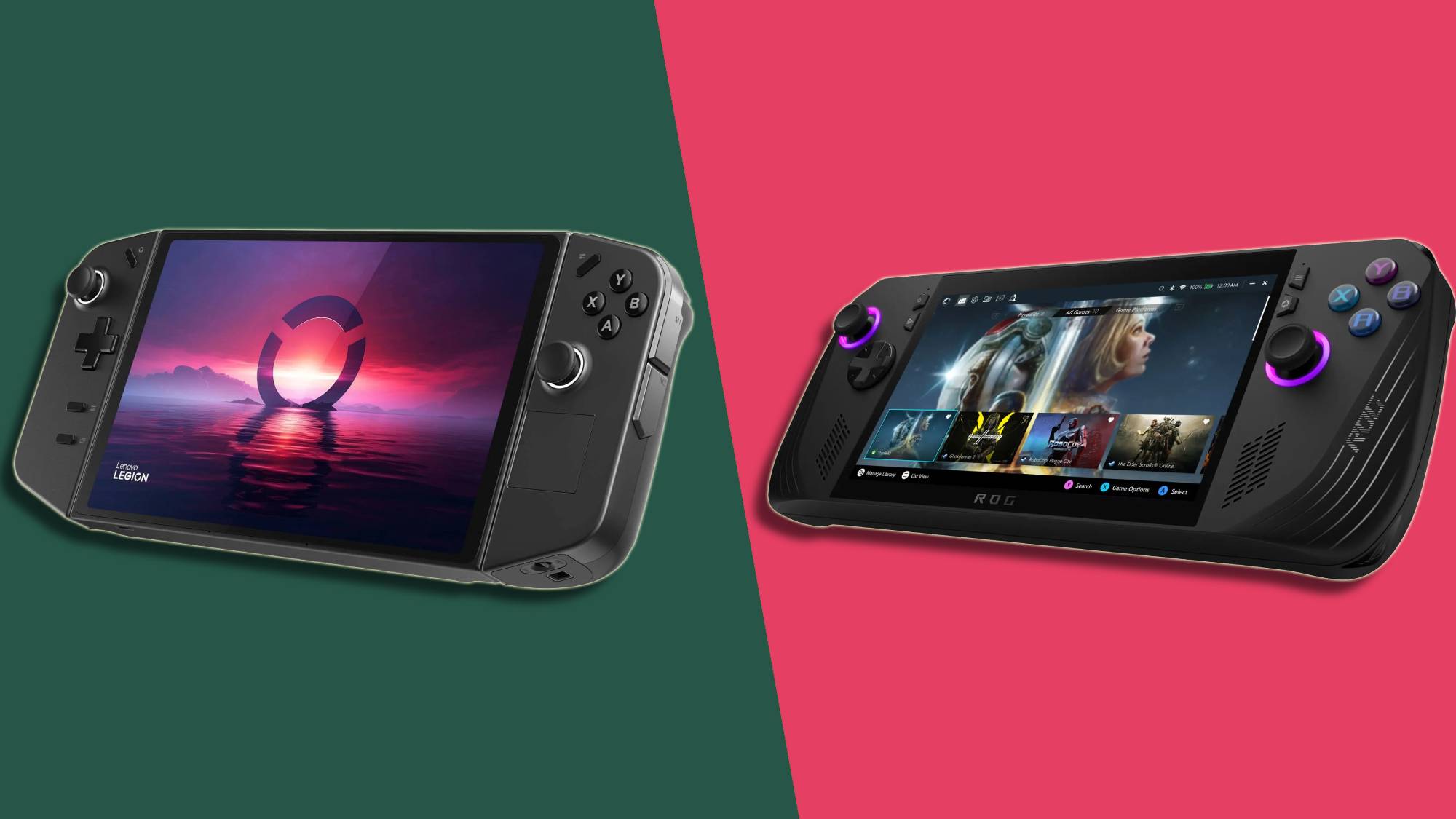
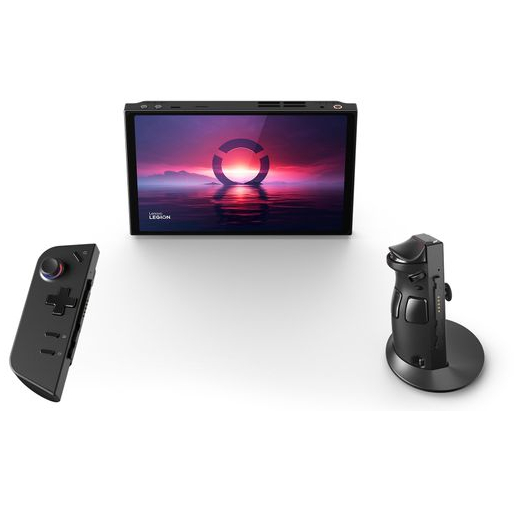
CPU: AMD Ryzen Z1 Extreme
Graphics: AMD RDNA Graphics
RAM: 16GB LPDDR5X (7500Mhz)
Screen: 8.8-inch QHD+, 144Hz, 500 nits, 97% DCI-P3
Storage: Up to 1TB M.2 2242 SSD
Ports: 2x USB Type-C, 3.5mm headphone jack, microSD
Connectivity: Wi-Fi 6, Bluetooth 5.1
Weight: 1.88 lbs | 854 g
Dimensions (W x D x H): 11.76 x 5.16 x 1.60 ins | 298.83 x 131 x 40.7 mm
The Lenovo Legion Go is one of the best gaming handhelds thanks to a powerful APU, great display, and deep customizability.
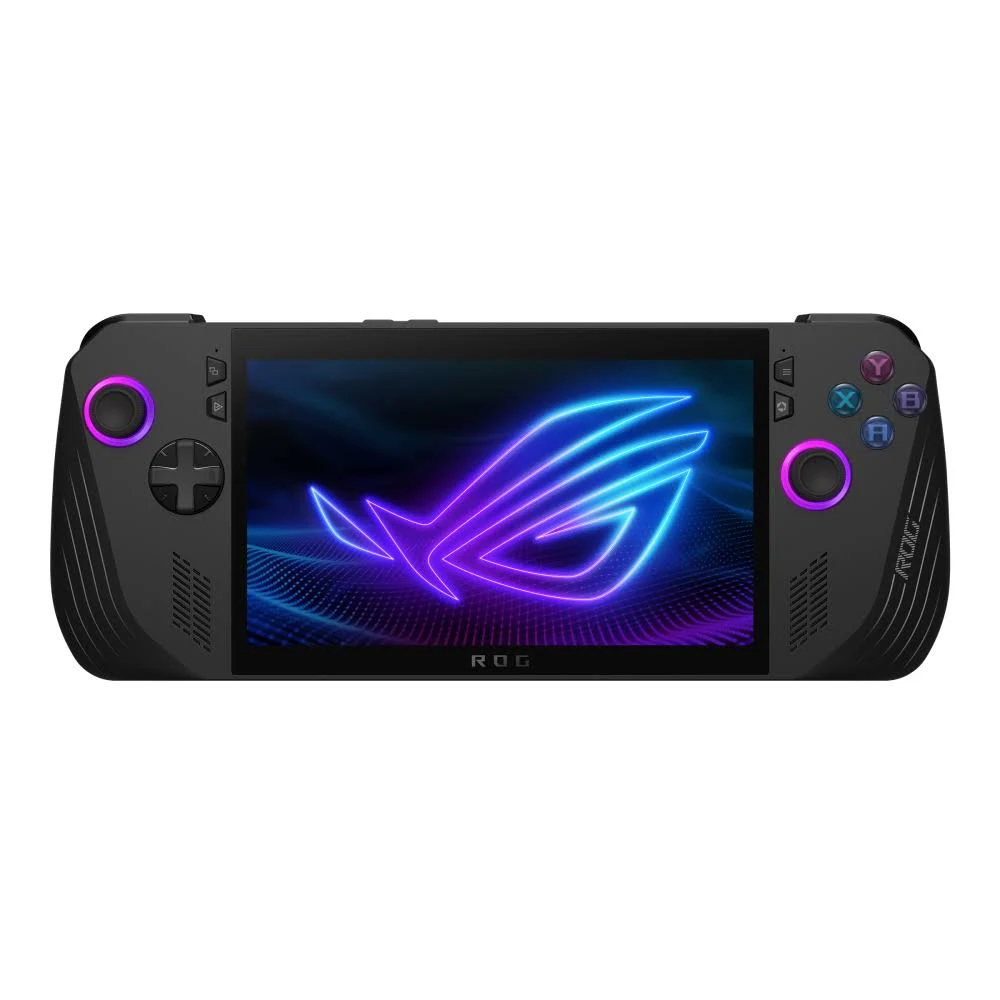
CPU: AMD Ryzen Z1 Extreme
Graphics: AMD Radeon Graphics
RAM: 24GB LPDDR5X-7500
Screen: 7-inch FHD (1920 x 1080), 120Hz, 500 nits
Storage: 1TB M.2 2280 SSD
Ports: 2x USB Type-C ports, 1x combo jack, 1x SD card reader slot
Connectivity: Wi-Fi 6E, Bluetooth 5.2
Weight: 1.49 pounds (678g)
Dimensions (W x D x H): 11.02 x 4.37 x 1.45 inches (28.0 x 11.1 x 3.69 cm)
The most recent PC gaming handheld on the market has some serious chops, but is it better than its predecessor?
Steam Deck's launch has truly changed the landscape of PC gaming handhelds, showing how a portable system built for power could be financially viable.
Since then we've gotten plenty of iterations from other manufacturers including the Lenovo Legion Go and the Asus ROG Ally X, and these two are especially in competition with each other as they overlap in both design and specs.
But how do these two juggernauts of handhelds stack up against each other? We'll compare both to see which is superior in performance and which is the overall better purchase.
Lenovo Legion Go vs Asus ROG Ally X: price
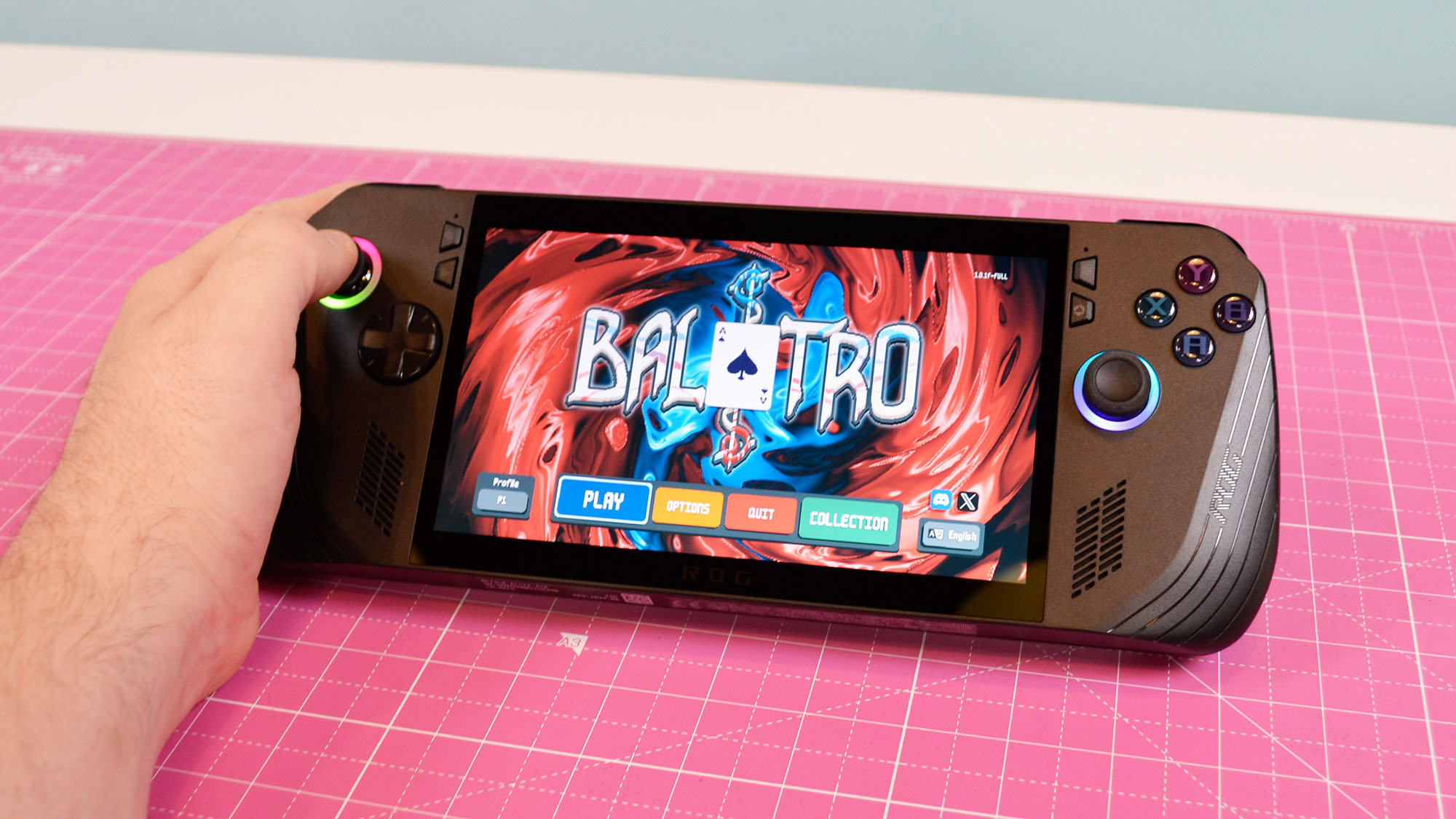
The Lenovo Legion Go starts at $699.99 / £700 (inc. VAT) / AU$1,299 for the base model that features 16GB of RAM and 512GB of storage, with availability in the US, UK, and Australia. The more expensive model goes for $749.99 and ups the storage to 1TB, though there are some regional differences in specs and pricing.
The Asus ROG Ally X retails at $799.99 / £799 / AU$1,599 and launched in 2024. There's only one model and it comes with 24GB of RAM and 1TB of storage.
The Legion Go eeks out a slight win over the ROG Ally X for pricing, due to the $100 difference between them for the former's base model and the $50 difference for its upgraded model.
Lenovo Legion Go vs Asus ROG Ally X: design & features
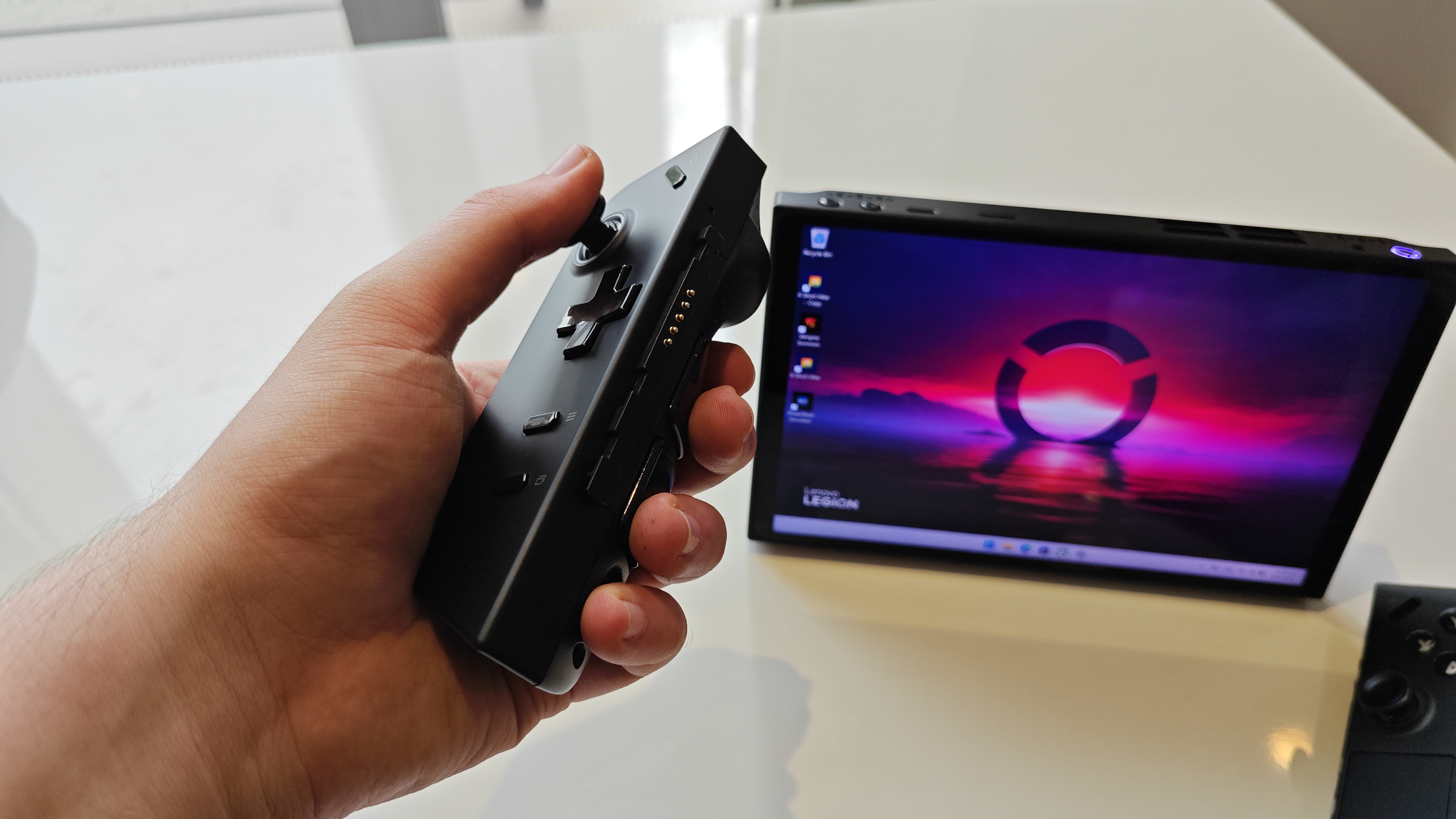
Both the Legion Go and ROG Ally X feature dual analog sticks, the same CPU, and buttons in the front and back of the system. Both also have mostly equal ventilation exhausts on the top of the system to compensate for the massive amounts of heat generated by their components. Their button layout and grips are also quite similar, though the ROG Ally X is more ergonomic with a customizable updated analog stick design.
The Legion Go's display is a gorgeous 8.8-inch QHD+ with a refresh rate of 144Hz. It also has a surprisingly high 97% of the DCI-P3 color gamut, so games look crystal clear and vibrant through its screen. The touchscreen is incredibly well-designed and pairs perfectly with Windows 11, most likely the best iteration of it so far. There's also the standout features, the dual detachable joysticks for first-person mode and the kickstand on the back that's perfect for long gaming sessions.
Design-wise the Legion Go wins. It has all the similar looks, button layout, and feel of the ROG Ally X but with an even better display, UI, and features that elevate the gaming experience. Its two real downsides are the added weight (but that's mitigated by the kickstand) and that Legion Space is useless compared to Asus's Armoury Crate CE.
Asus ROG Ally vs Asus ROG Ally X: specs
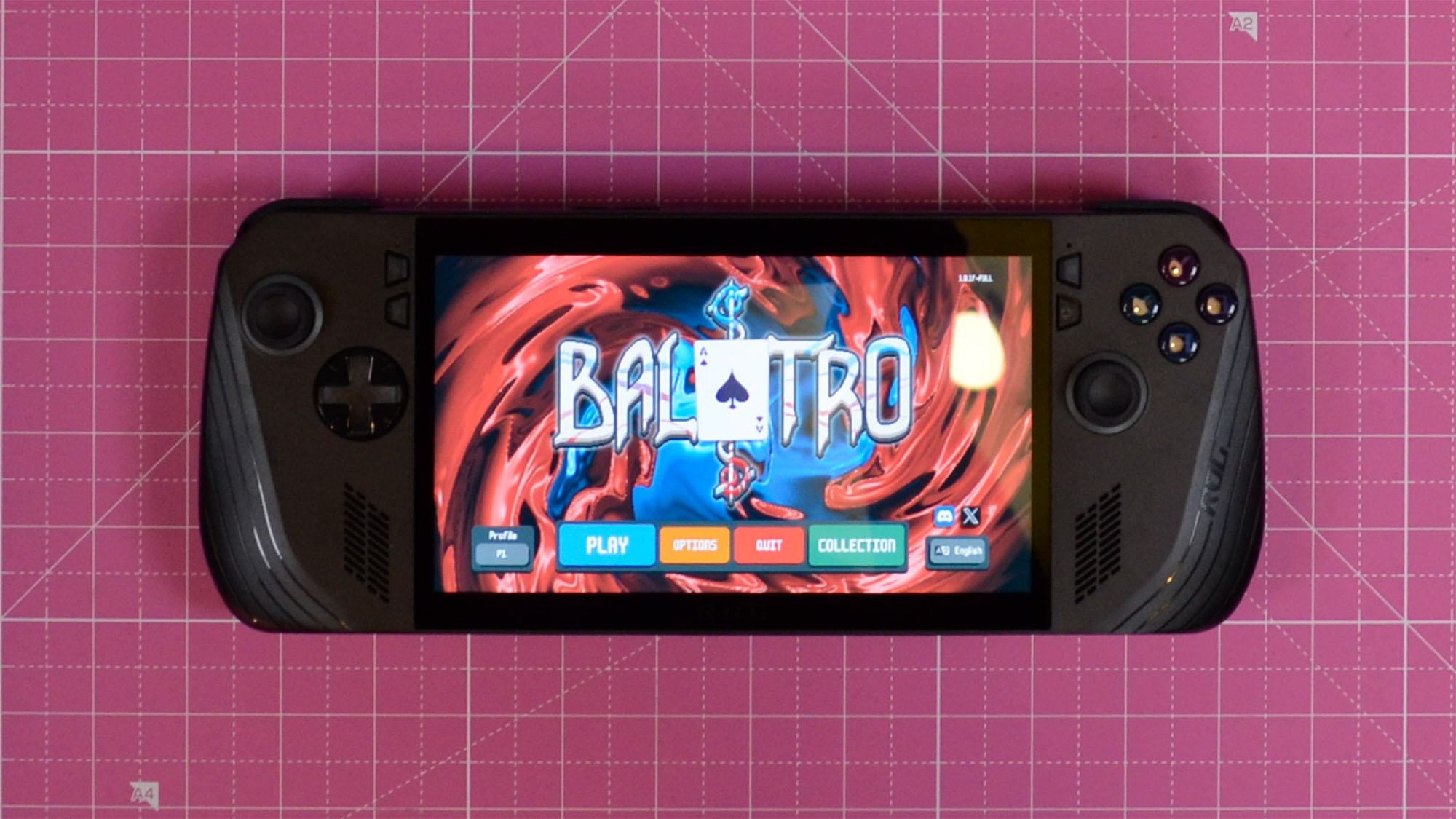
| Header Cell - Column 0 | Lenovo Legion Go | Asus ROG Ally X |
|---|---|---|
| Size | 11.76 x 5.16 x 1.60 inches (298.83 x 131 x 40.7 mm; W x D x H) | 11.02 x 4.37 x 0.97 ~ 1.45 inches (28.0 x 11.1 x 2.47 ~ 3.69 cm; W x D x H) |
| Weight | 1.88 lbs (854 g) | 1.49 lbs (678 g) |
| Resolution | WQXGA (2560x1600) | FHD (1920 x 1080) |
| CPU | AMD Ryzen Z1 Extreme | AMD Ryzen Z1 Extreme |
| GPU | AMD RDNA Graphics | AMD Radeon Graphics |
| RAM | 16GB LPDDR5X (7500Mhz) | 24GB LPDDR5X-7500 |
| Storage | Up to 1TB M.2 2242 SSD | 1TB M.2 2280 SSD |
| Brightness | Up to 500 nits | 500 nits |
| Refresh rate | 60Hz or 144Hz | 120Hz |
| Touch enable | Yes | Yes |
| Connectivity | 802.11ax 2x2 Wi-Fi + Bluetooth 5.1 | Wi-Fi 6E(802.11ax) 2*2 + Bluetooth® 5.2 |
| Audio | Stereo speakers | Stereo speakers, 2W x2, built-in array microphone |
| Power | 49.2 Wh USB Type-C | 65 Wh USB Type-C |
| Operating system | Windows 11 | Windows 11 |
| Video output | Up to 1080p | 1080p |
| USB connector | USB Type-C for charging | USB Type-C for charging |
| 3.5mm headphone jack | Yes | Yes |
| Battery life | approximately 2 to 3 hours of gameplay | approximately 3 to 5 hours of gameplay |
| Charging time | approximately 3 hours | approximately 3 hours |
Lenovo Legion Go vs Asus ROG Ally X: performance
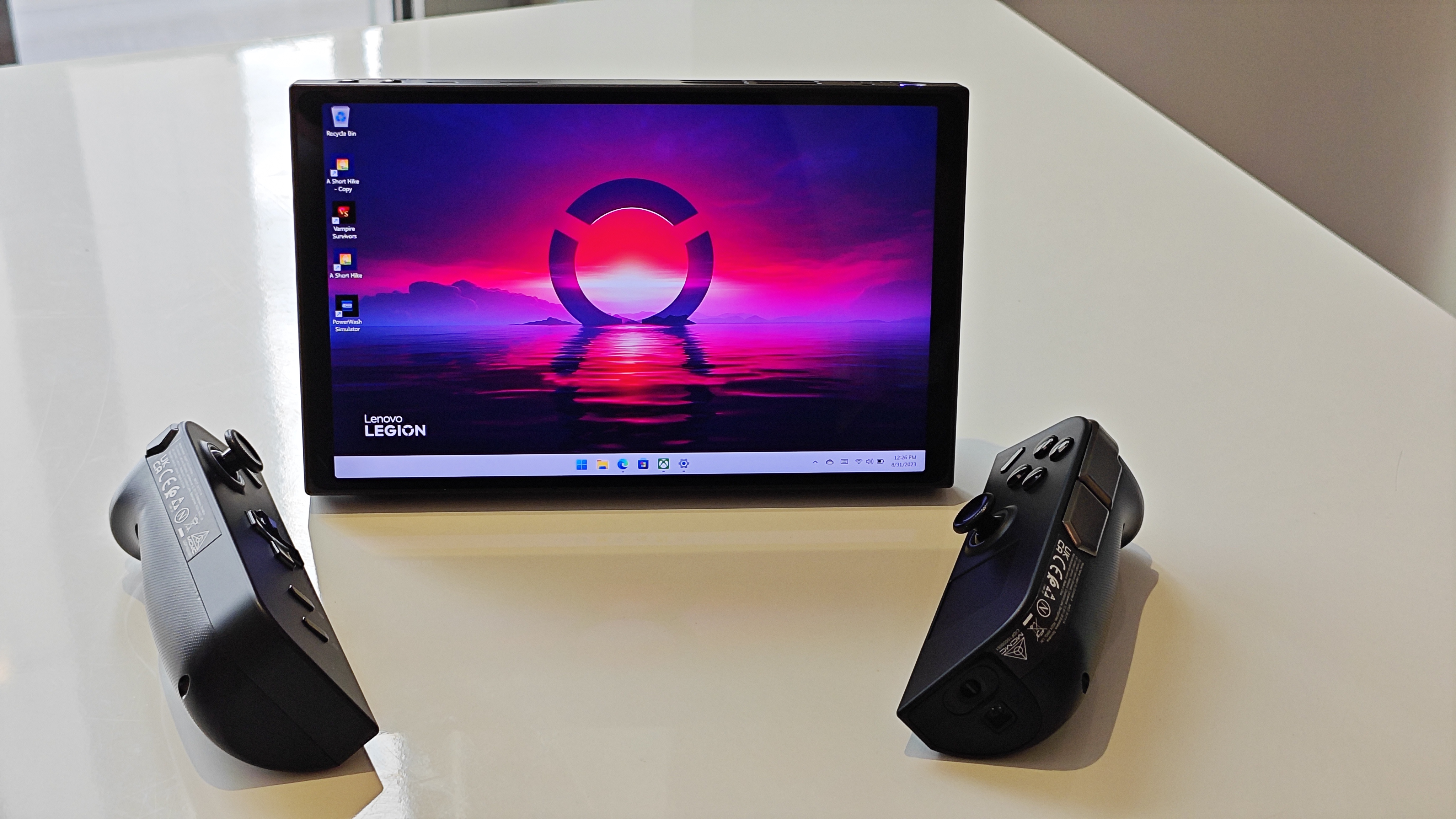
As the Lenovo Legion Go and Asus ROG Ally X share the same AMD Ryzen Z1 Extreme SoC, the overall performance is nearly the same, with the latter just getting one over the former thanks to Turbo Mode.
I tested the two handhelds with various titles like Forza Horizon 5 and Cyberpunk 2077 to see how each fared. With Forza Horizon 5, the Legion Go had ray tracing enabled on Medium settings and could reach above 50fps. When it came to Cyberpunk 2077, the portable ran at around 26fps on Medium and Low settings. When I enabled ray tracing on the Legion Go, the framerate dipped to 15fps but was still able to run.
I tested the ROG Ally X on Turbo Mode with Forza Horizon 5 and ray tracing enabled and even on High settings could play it at an impressive rate of above 50fps. On Cyberpunk 2077, the ROG Ally X got roughly the same performance as the Lenovo Legion Go, hovering around 28fps while on Turbo Mode. The downside is that Turbo Mode depletes the battery life extremely quickly, meaning that you need to keep it on AC power for the most mileage.
The Legion Go has the overall better UI, thanks to Windows 11 being far more optimized for the system and better synergy with the touchscreen. The only caveat is Legion Space, which is rather useless compared to the much improved Armoury Crate CE but offset by the simple fact that you don't need to use it.
Lenovo Legion Go vs Asus ROG Ally X: verdict
So which is the better PC gaming handheld? It has to be the Lenovo Legion Go as it shares performance and general design with the Asus ROG Ally X but wins out in nearly every other category.
Pricing is especially the most important category to consider here, as the Legion Go is $50-$100 cheaper (without sales) than the ROG Ally X but offers an overall better experience due to the host of features, superior UI, and better display.
Recently purchased a Lenovo Legion Go or Asus ROG Ally X? Consider checking out our list of the best Steam games and best PC games to get your collection going on either device.
Get daily insight, inspiration and deals in your inbox
Sign up for breaking news, reviews, opinion, top tech deals, and more.

Named by the CTA as a CES 2023 Media Trailblazer, Allisa is a Computing Staff Writer who covers breaking news and rumors in the computing industry, as well as reviews, hands-on previews, featured articles, and the latest deals and trends. In her spare time you can find her chatting it up on her two podcasts, Megaten Marathon and Combo Chain, as well as playing any JRPGs she can get her hands on.